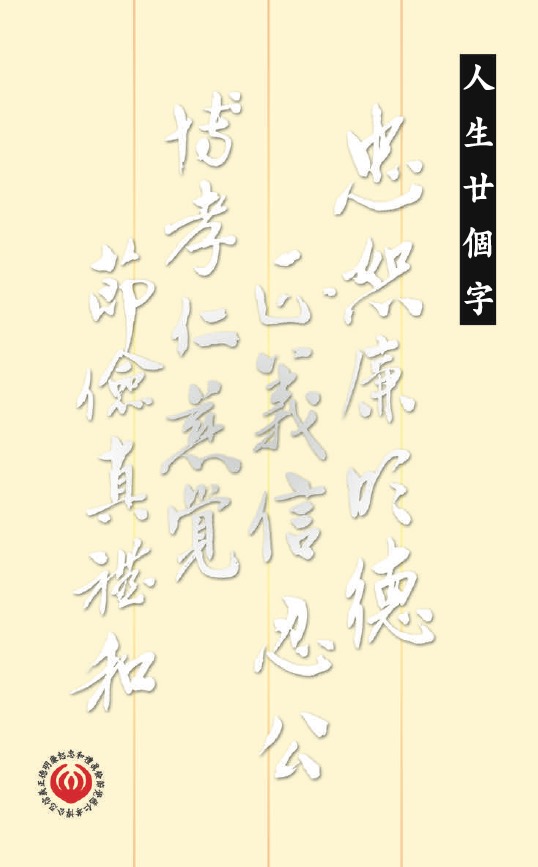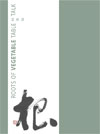Temperance – 節箴
- 節箴
- JIE (Temperance)
| 高世之節 | 不屈不移 | 聖達次守 | 前志有之 |
| 寧為玉碎 | 不作瓦全 | 歲寒松柏 | 貞操凜然 |
高世之節. 凡人有超乎流俗之志操。
O 節,操守也。
不屈不移 不為威武所屈,不為貧賤所移。
O(孟子)「 貧賤不能移,威武不能屈,此之謂大丈夫。」
聖達次守 前志有之 夫節,猶分也。言聖人達天命,若舜禹受禪,湯武革命,其次則自守己分而不取,如子臧季扎之類,此皆古人志記所有也。
O(左傳)「晋侯執曹伯, 諸侯將見子臧於王而立之子臧辭曰,前志有之,聖達節,次守節,下失節,為君, 非吾節也,不能聖,敢守失乎。」
寧為玉碎 不作瓦全 寧肯全其氣節如玉之碎,不欲損其氣節若瓦之全。
O(北齊書元景安傳)「 大丈夫寧為玉碎不作瓦全。」
歲寒松柏 貞操凜然 譬如冬令嚴寒,草木凋零,獨有松柏之性,堅苦卓絕,凜然存在,其操守為何如耶。
O(論語)「歲寒然後知松柏之後凋也。」
A person of high ideals and strong willpower cannot be deterred from his set purpose (A). With unwavering willpower, sages accomplish their ideals and human beings reach their goals. Inspirational achievements accomplished through JIE have been exhibited throughout our history. When faced with challenges, a person of JIE would rather be a broken piece of precious jade than to remain intact as a cheap common tile. Behold the pine trees when winter comes – how they withstand the bitterness of the cold winter wind and snow. Likewise, the uncompromising spirit of a person of JIE shines brightest in turbulent times.
NOTES: –
(A) The Works of Mencius: “Undeterred from his set purpose by neither wealth nor poverty, unbowed by neither authority nor power– these are the qualities that constitute a great human.”

